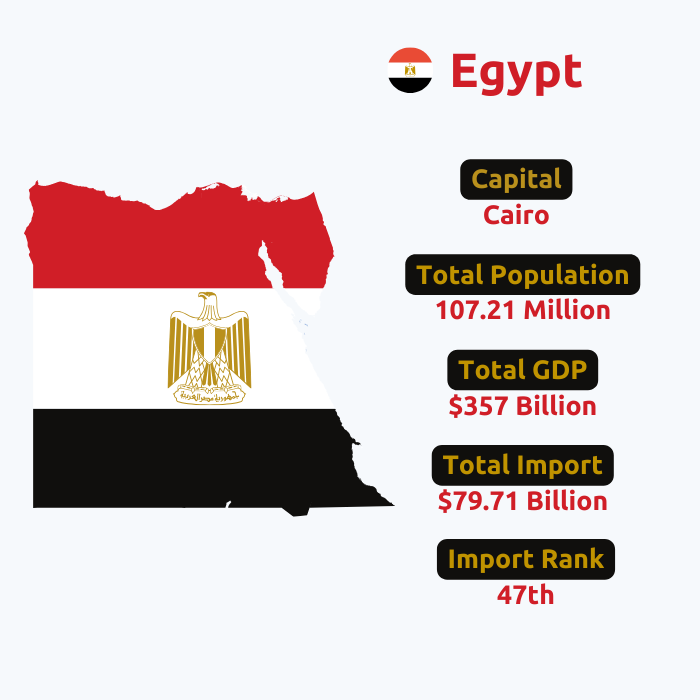Sample Data
Understanding Egypt Bill of Lading Import Data
We obtain trustworthy data from organizations, shipping businesses, and customs ports. This Trade Data
contains a wide range of fields, such as HS codes, product descriptions, prices, quantities, origin country,
destination country, and port names together with currency values. For traders and marketers, this trade data is
crucial information that helps them to make informed decisions. From the HS codes and product descriptions to
the quantity and cost of each product, everything can be obtained through this trade data.
We have included a sample of this trade data for your convenience and greater understanding so
that you can see what the trade data looks like as a whole, with complete details.
Egypt's Import data refers to detailed information about goods brought into Egypt from foreign sources. It encompasses various aspects, including the description of goods, their quantity, value, origin, and the parties involved in the transaction. Egypt import data is crucial for businesses, investors, and analysts to gain insights into the country's import landscape, identify market trends, and make data-driven decisions. Based on the import data from Egypt’s customs database, Egypt imported goods worth $83.15 billion in 2023. Reliable data is gathered from establishments, other shipping firms, and Egypt's approved ports. Product descriptions and HS codes are just two of the many fields that are contained in Egypt's trade data for its imports and shipment information. The information you are given regarding Egypt's import and trade figures is really helpful and educational. The most recent shipping bills, invoices, and other crucial trading documents serve as the foundation for the import data.
We obtain trustworthy data from organizations, shipping businesses, government authorities, and customs ports. For traders and marketers, this bill of lading trade data is crucial information that helps them make informed decisions. Everything can be obtained through this shipment data from the HS codes and product descriptions to the quantity of each product. We have included a sample of the B/L data for your convenience and greater understanding so that you can see what the trade data looks like as a whole, with complete details. So, as you can see, in this bill of lading report, we also include the number of goods needed to be imported/exported, HS codes, the product description, quantity, importer/exporter name, and port name from the country's shipment data. In this comprehensive bill of lading database, we ensure that every detail is meticulously recorded, which makes this trade data efficient for businesses worldwide.





